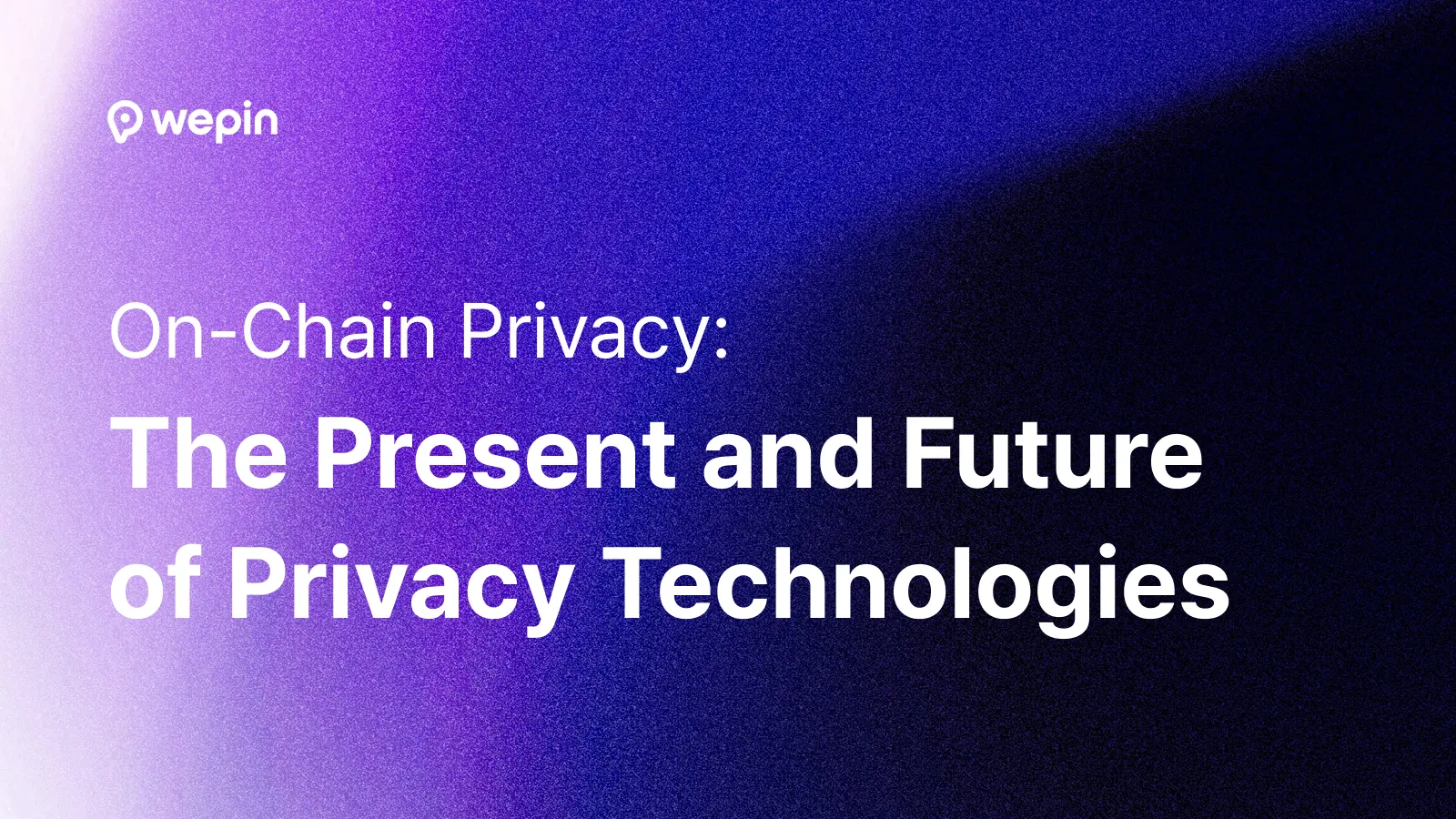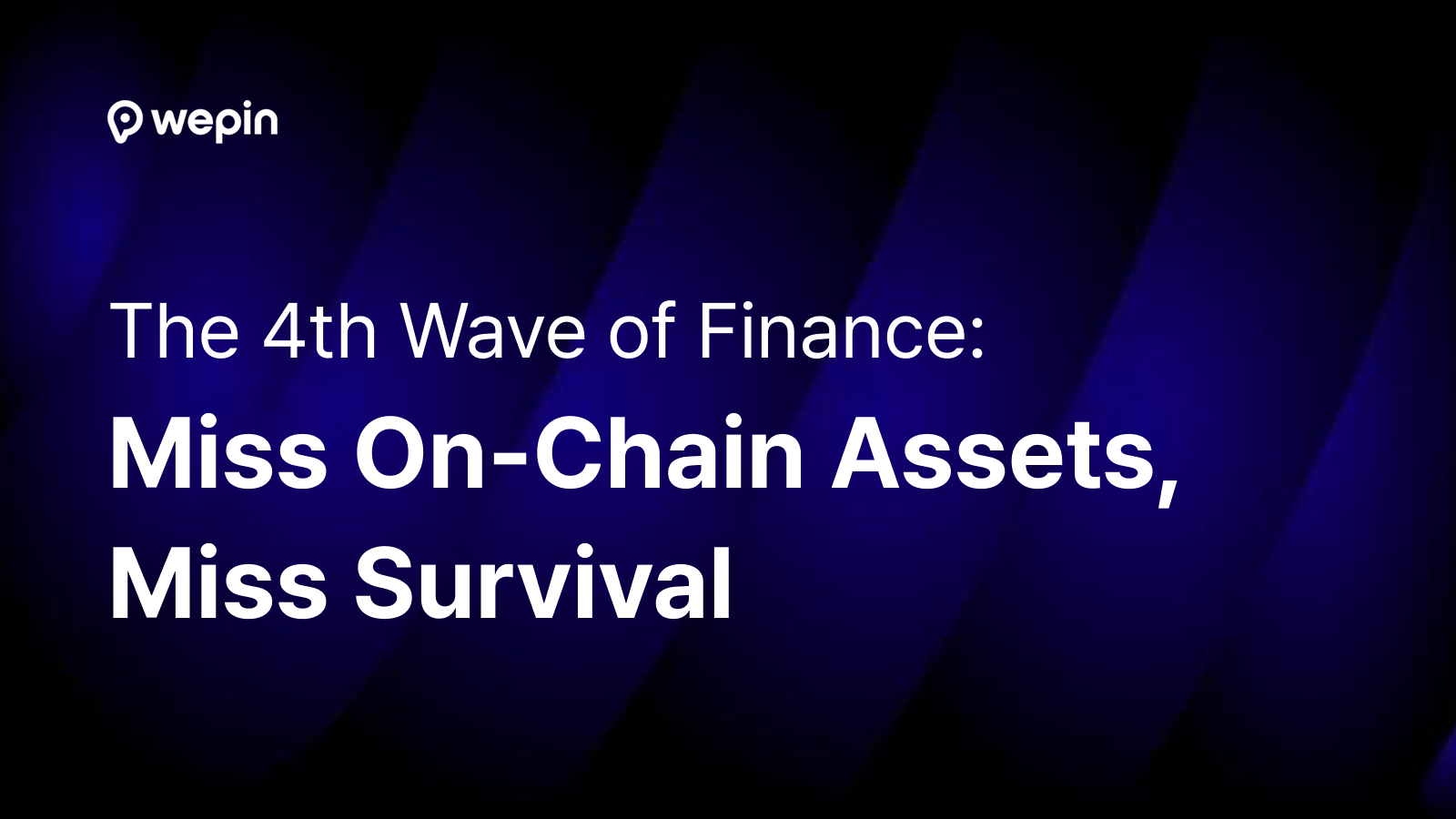Author: Jiyun Kyung, Business Development (https://www.linkedin.com/in/jiyunkyung/)
WEPIN Partners Day 2024 Speakers
① Verychat: "The Future of Web3 Mass Adoption Through the History of Computer Popularization"
③ map3protocol: "Web3 based Real-World Map"
④ Metacultures: "Global Mass Adoption through K-Culture Performance"
⑤ BitBlue: "Entertain Transformation; AltTown"
⑥ Socialus: "Building YouTube Investment Ecosystem with Web3 Wallet"
⑦ StudyRich: "StudyRich X WEPIN, Creating WEB3 Learning App"
⑧ Modern Lion: "Driving Blockchain Mass Adoption through NFT"
⑨ WEPIN Wallet: "Growing Together with Partners, Shaping the Future of Web3 Mass Adoption"
[TL;DR]
- Web3 currently stands at an intermediate stage between DOS and Windows 95, requiring a killer application comparable to MS Office for mass adoption.
- VeryChat, in conjunction with WEPIN Wallet, is addressing major Web3 adoption barriers including seed phrases, complex wallet addresses, and security vulnerabilities.
- VeryChat aims to establish a global financial infrastructure where anyone can transfer funds easily and cost-effectively through verification using stablecoins.
About Verychat
VeryChat is a global chat application where users worldwide can communicate freely while earning rewards. Recognizing that cryptocurrency adoption requires enhanced user convenience and reliability, our team developed Very Network and its core application, VeryChat, to realize this vision.
$VERY, the native token issued on Very Network's mainnet, serves as the exclusive social currency within VeryChat, establishing a user-centric reward system rather than focusing on corporate profit maximization. As a utility token, $VERY will be integrated into VeryChat and Very AdSense's advertising systems, circulating as ecosystem rewards.
VeryChat's ultimate objective is to create a stable and efficient financial ecosystem through a verified chat application enabling stablecoin transfer services.
The Future of Web3 Mass Adoption Through the Lens of Computer History

The ENIAC computer was invented in 1954, but for the first three decades, its use was limited to universities, research institutes, and military applications. The landscape began to shift in 1981 with the introduction of IBM-PC and DOS, marking the beginning of personal computing accessibility.
A significant breakthrough came in 1995 with Windows 95's GUI interface, catalyzing widespread computer adoption. By 2001, the release of Windows XP and MS Office transformed computers into indispensable devices for the general public.

What about Web3? The concept of cryptocurrency emerged in 2009 with Bitcoin's creation. Initially known only among a small circle of developers and community members, the crypto landscape reached a turning point in 2015 with Ethereum's genesis block.
Cryptocurrency adoption grew steadily, driven by early adopters utilizing graphics cards for mining. The ecosystem experienced rapid global growth from 2022 to 2023, fueled by developments in centralized exchanges (CEX), DeFi, and NFTs. However, as of 2024, the sector has entered a period of consolidation.
Reflecting on computer adoption history, MS Office played an even more crucial role than Windows XP in driving mass adoption. True popularization occurs through applications that offer tangible value and ease of use for the general public. In Web3 terms, if mainnet is analogous to Windows XP, then dApps are equivalent to MS Office - yet the Web3 ecosystem still lacks a dApp with MS Office-level impact.

This brings us to our key point today. Why haven't we seen a dApp with MS Office-like influence? During the DOS to Windows 95 transition, users were familiar with basic technical operations like formatting and Windows installation. However, after MS Office's widespread adoption, interest in technical aspects significantly diminished.
While 200 million people globally use blockchain and cryptocurrency, we're still discussing technical terms like L1, L2, and zero-knowledge proofs, even providing MetaMask installation guides. Web3 remains at an intermediate stage between DOS and Windows 95. For true mass adoption, the technology needs to become invisible to users.
The success of Toss, a Korean fintech company, illustrates this perfectly. Toss never emphasized its technical architecture; users could transfer money easily without understanding backend systems or account numbers. Through user-centric UI/UX improvements and innovative approaches, Toss democratized mobile banking, influencing the entire financial services sector. The key lesson is prioritizing user convenience over technical sophistication.

The first major barrier to Web3 adoption is the seed phrase system. These 12 or 24-word phrases are gradually being eliminated through WaaS (Wallet as a Service) solutions like WEPIN Wallet. A striking example occurred during an NFT project's whitelist registration, where 6,000 out of 20,000 applicants mistakenly submitted their seed phrases instead of wallet addresses.
This incident highlighted users' lack of understanding regarding seed phrase concepts and importance, making WEPIN's seedless approach particularly appealing.

The second major barrier is the complex wallet address system. While bank account numbers can be memorized through frequent use, wallet addresses consist of long strings that are virtually impossible to remember. When transferring large amounts of cryptocurrency, users must go through the cumbersome process of first sending a test amount for security purposes before proceeding with the actual transfer. Managing multiple wallet addresses simultaneously presents an even greater challenge.
To address this issue, VeryChat has developed a system enabling direct transfers through profiles or chat windows without requiring wallet addresses. However, for security purposes, the system mandates KYC verification before accessing transfer functionality.

The final and most critical issue is the security risk associated with wallet connections. Most hacking incidents in Web3 occur during the wallet connection process. While this is a challenging problem to solve, we are committed to finding a solution.
In the current Web3 ecosystem, wallets serve multiple functions - acting as user ID, account number, and digital bank book. Most dApps require wallet connections for service access, but this process has led to security incidents through phishing sites and unauthorized access during NFT minting approval processes.

To combat these issues, we developed the VERY Login API. This system only requires users to input their VeryChat ID, after which a login code is sent via chat (with plans to implement fingerprint and iris recognition in the future). Authentication is completed with this code alone. DApps only need to verify the VeryChat ID, while VeryChat manages the actual wallet address mapping. Even when signatures are required, as in Web2 services, they can be processed through simple text verification.
These improvements represent just the beginning of necessary user experience enhancements. Without simplifying the current complex systems, mainstream users will struggle to effectively utilize blockchain services. This is the fundamental reason why we developed VeryChat.

While current financial systems incur substantial network costs to ensure transfer security, blockchain technology can significantly reduce these expenses. Moreover, blockchain maintains functionality even in extreme scenarios like war, where traditional banking networks might fail.
I believe the future of Web3 lies in stablecoins. However, current stablecoin usage involves complex processes and the inconvenience of converting received coins back to fiat currencies like KRW or USD. True mass adoption requires the ability to use stablecoins anywhere without these intermediary steps. For instance, we need a simple structure where stablecoins can be transferred instantly by scanning a QR code.
In South Korea, where financial infrastructure is highly developed, these issues might not seem pressing. However, globally, over 50% of people struggle with basic banking access, including opening accounts and securing assets safely. The situation is particularly severe in countries experiencing significant currency devaluation, where black market dollars circulate widely and exchange fees are exorbitantly high.
Layer 2 solutions have already proven their ability to substantially reduce transfer fees. VeryChat's ultimate goal is to create an environment where anyone worldwide can easily and affordably transfer and freely use stablecoins, making financial services truly accessible to all.
Note: This content has been edited from presentations delivered at WEPIN Partners Day 2024. Please be advised that some content may vary from the original presentations.











